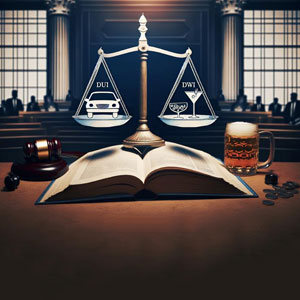
In this article, you can discover:
- The legal definition of driving under the influence in California.
- How a DUI can impact your driver’s license.
- How an attorney can help you in the aftermath of a DUI charge.
How Is DUI Defined In California?
A DUI generally occurs when someone drives with a blood alcohol concentration (BAC) of 0.08% or higher or when someone drives under the influence of a drug. What’s more, you can also be charged with a DUI if your BAC is under 0.08% and the arresting officer feels you are impaired and unable to drive safely.
Some prescription medications can also be the cause of a DUI if their effects impact your driving ability.
Do I Have To Give A Breath Or Blood Sample During A DUI? What Happens If I Refuse?
As a licensed driver in California, your consent is implied if you are asked to submit to a breath or blood test by a police officer or a sheriff. This means that your refusal to submit will result in the revocation of your driver’s license for one year along with a misdemeanor charge.
Do I Lose My Driver’s License Immediately After A DUI Arrest And Charge?
If a police officer arrests you for a DUI, the arresting officer will confiscate your driver’s license and provide you with a Notice of License Suspension. Once you receive your Notice of License Suspension, you have 10 days to request a hearing with the DMV to contest the suspension.
This license suspension goes into effect 30 days after it is issued.
Are There Ways To Avoid A License Suspension?
There are several options you and your attorney can look at to delay or prevent the suspension of your driver’s license. For one, your DUI attorney can request a DMV hearing to challenge the suspension. Your attorney can also assist you in obtaining a restricted license once the suspension goes into effect.
This restricted license permits you to drive between work, DUI classes, and home, allowing some limited, essential driving privileges to continue.
What Are The Penalties For A DUI Conviction In California?
The penalties for a DUI conviction in California depend on how many prior DUI convictions you have on your record, your blood alcohol content at the time of arrest, and the circumstances surrounding your arrest.
A first DUI conviction will result in at least 48 hours in county jail, significant fines, three months of DUI classes, three years of informal probation, and a suspension of your driving privileges by the DMV. Depending on the severity of your intoxication, a judge may order more jail time or additional time in DUI classes.
If you receive a second DUI conviction within 10 years, penalties are significantly increased. The judge may order at least 90 days in a county jail, and you’ll be looking at five years of probation.
If you receive four DUI convictions within ten years, you can be charged with a felony, resulting in prison time and substantial fines.
What’s more, having a BAC of 0.15% or above or someone being injured because of your driving can also increase DUI charges from a misdemeanor to a felony.
Finally, a DUI conviction often has consequences beyond legal penalties. Professionally and personally, a DUI conviction can cost you your job, cause strains in relationships, and result in serious increases in your auto insurance costs.
If I Plan On Pleading Guilty To A DUI Charge, Do I Still Need An Attorney?
Before you enter a plea, it is critical to consult with a DUI attorney. Not allowing an attorney to review your case could cause you to face unnecessary charges and legal consequences.
For example, your attorney may discover that there were mechanical issues with the breathalyzer machine used, bringing the validity of charges into question. Or, your attorney could discover that the circumstances of your case warrant a lesser “wet reckless” rather than a DUI charge.
Some circumstances, such as an elevated BAC or other parties being injured, could lead to felony charges, making a strong defense all the more important. The best way to safeguard your rights and freedom after a DUI arrest is to allow a quality, diligent attorney to help you navigate the law and examine your charges in depth.
Still Have Questions? Ready To Get Started? For more information on Defending Against DUI Charges In California, a free 30-minute phone consultation is your next best step. Get the information and legal answers you are seeking by calling (707) 730-4177 today.
